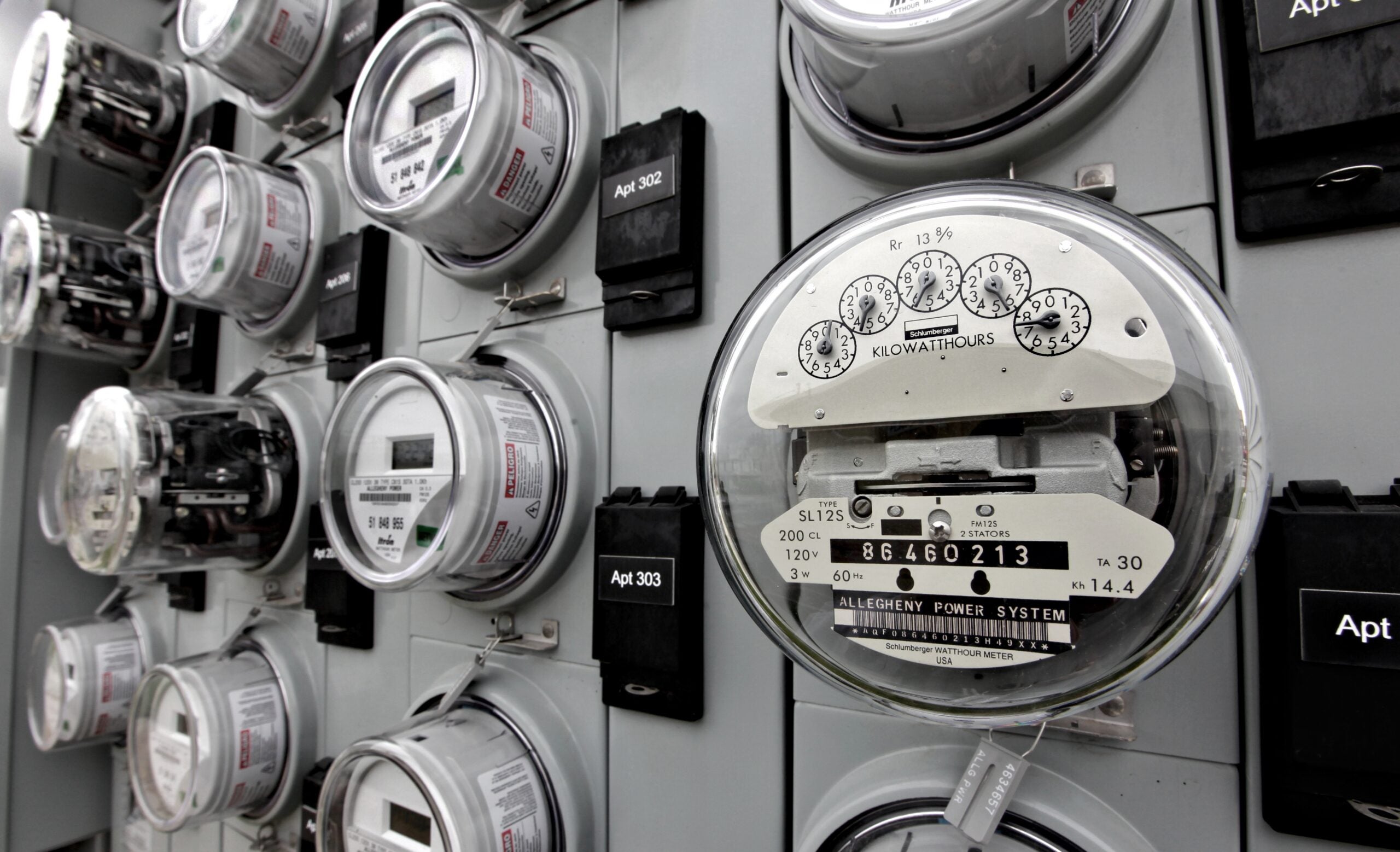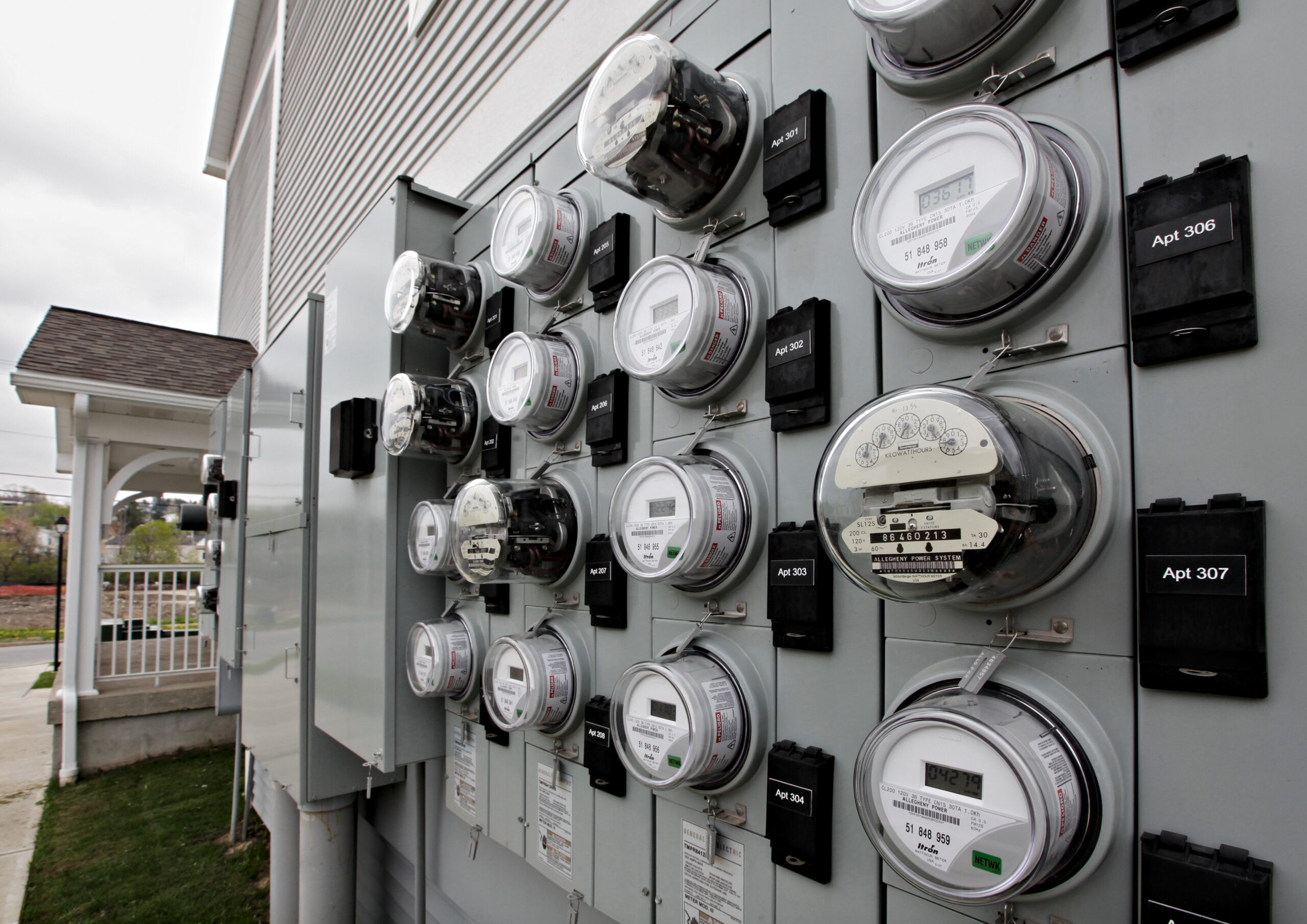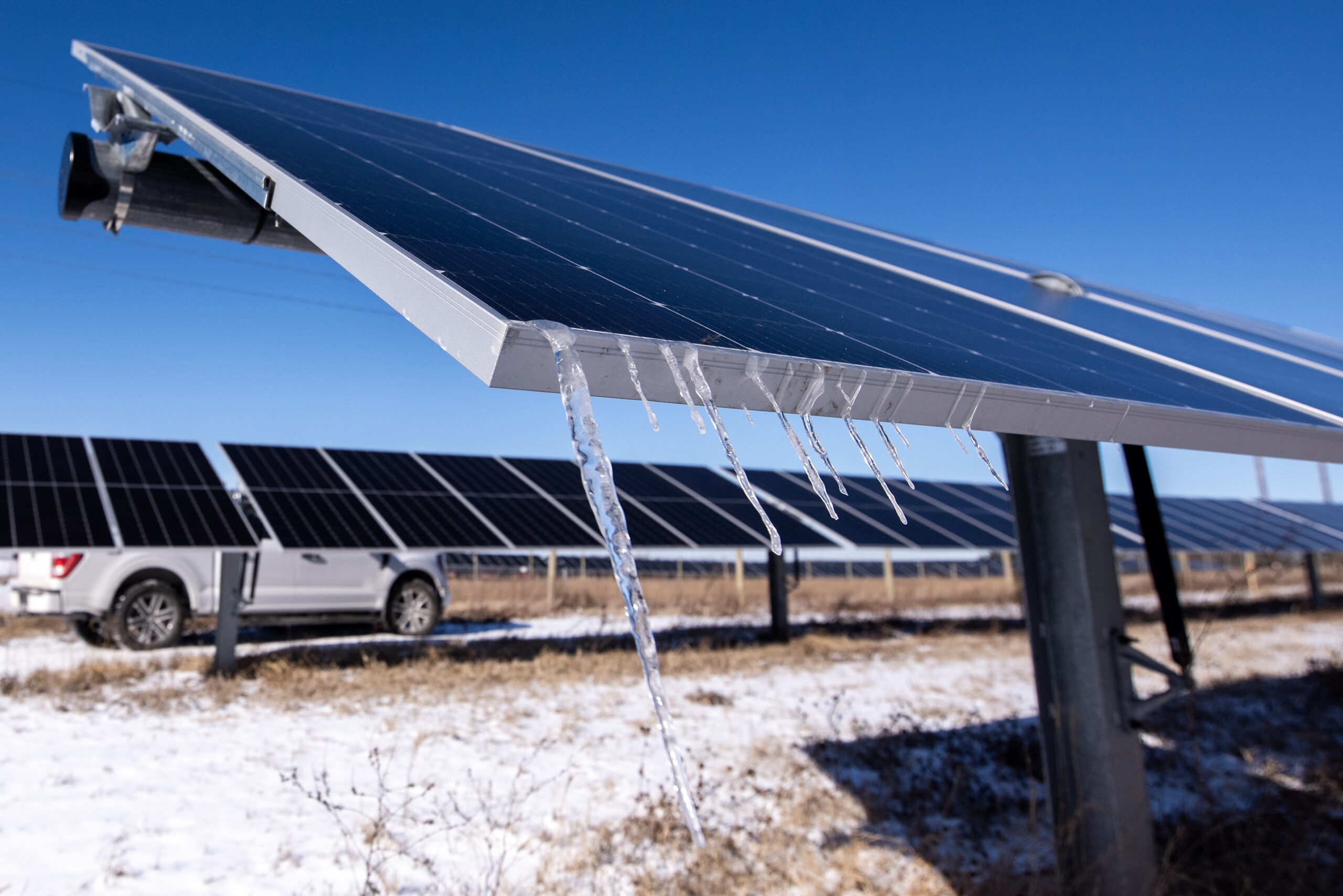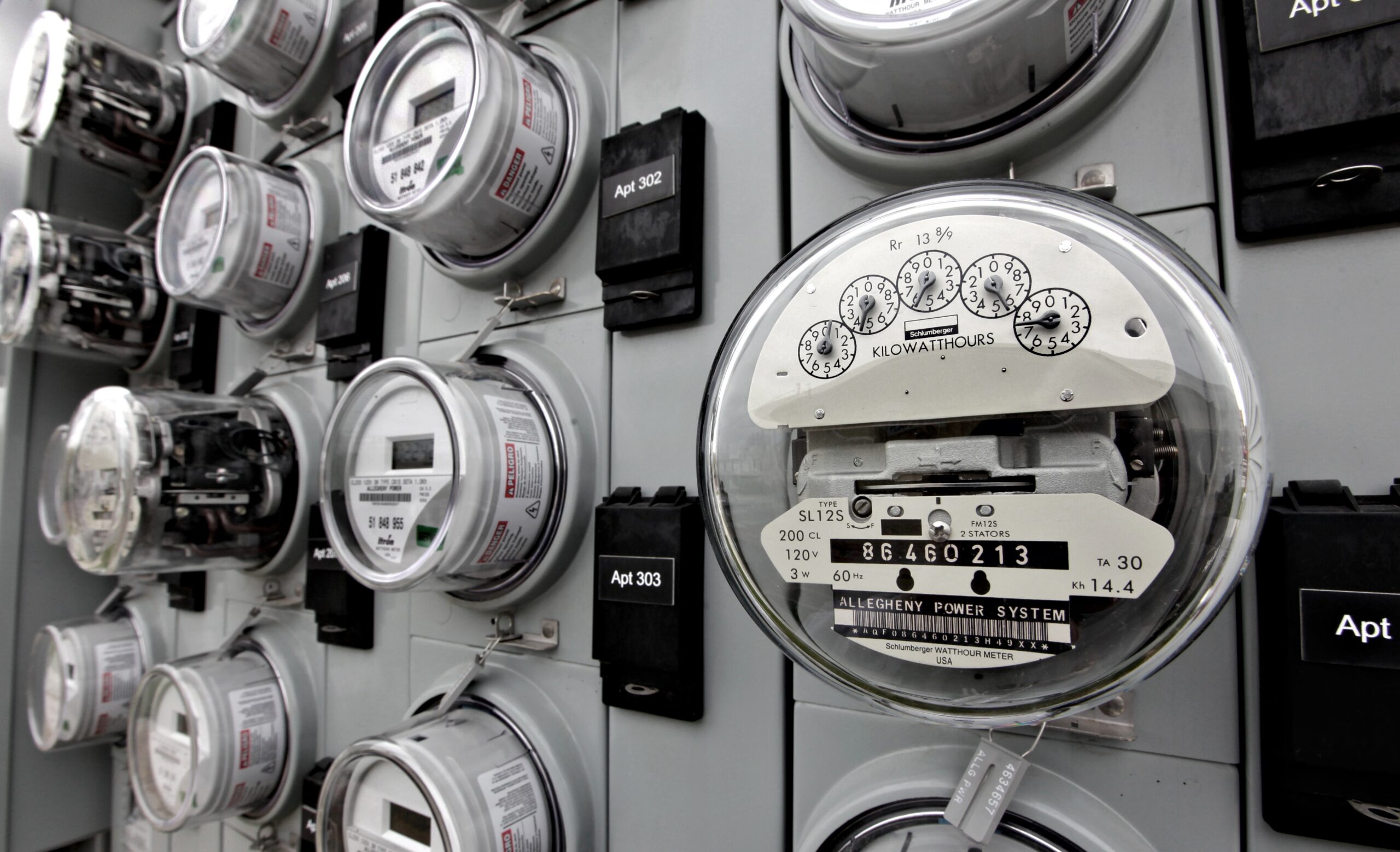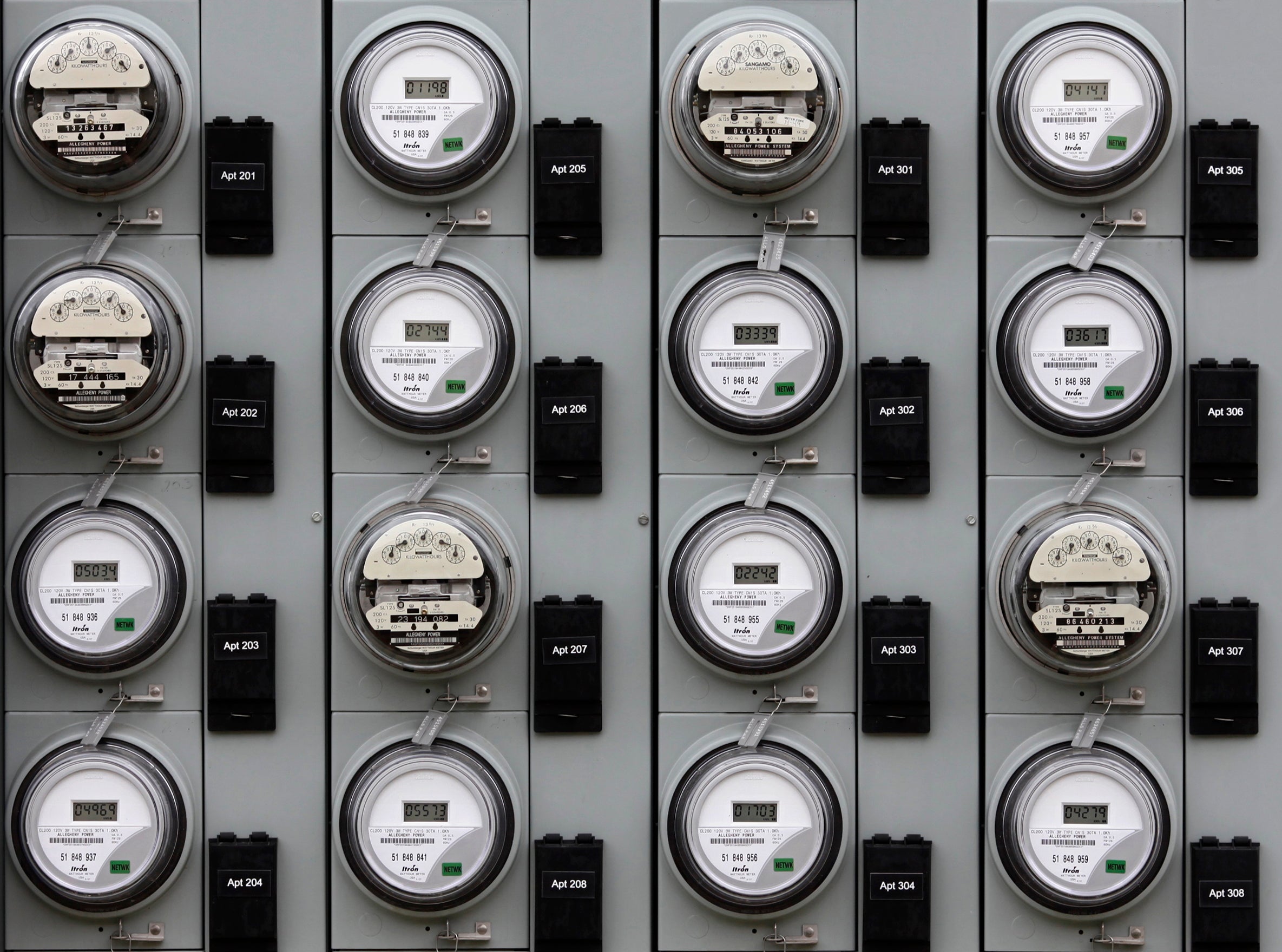Customers for three Wisconsin utilities told state regulators this month that proposed rate increases could make it harder to afford utility bills.
The Public Service Commission of Wisconsin, or PSC, held public hearings this month in rate cases for Alliant Energy, Xcel Energy and Madison Gas and Electric.
While some customers focused on affordability issues in their testimony, others said they feared changes — proposed by Alliant and Madison Gas and Electric — to reimbursements given to solar customers would slow down residential solar adoption if approved.
News with a little more humanity
WPR’s “Wisconsin Today” newsletter keeps you connected to the state you love without feeling overwhelmed. No paywall. No agenda. No corporate filter.
What are utilities asking for?
This spring, Alliant Energy asked for an 8.4 percent increase to electric rates in 2024 and an additional 5.4 percent increase in 2025. For natural gas, Alliant requested a 6.3 percent rate hike in 2024.
After its staff audit, the PSC estimated a 5.65 percent increase is needed for 2024 electric operations in Wisconsin, and 10.29 percent is needed for 2025. For natural gas, regulators recommended a 5.44 percent increase for 2024 and a 5.35 percent increase for 2025.
Xcel Energy asked for a 4.8 percent overall electric rate increase and 5.3 percent for natural gas next year. The PSC audit found Xcel could decrease Wisconsin electric rates by 0.34 percent in 2024, and increase natural gas rates by 3.14 percent.
Madison Gas and Electric, or MGE, adjusted its rate requests since its initial filing this spring to reflect lower anticipated fuel costs, said spokesperson Steve Schultz. It’s now requesting a 1.5 percent electric rate increase in 2024 instead of 3.75 percent. MGE is also requesting a 2.27 percent natural gas rate increase in 2024.
MGE’s requests for 2025 electric and natural gas rates are expected to be lower than those initially proposed. Schultz said the utility hasn’t finalized rate designs for 2025, but expects a 1.9 percent increase to electric rates and a 1.26 percent increase to gas rates. The utility’s initial 2025 request came out to a 3.4 percent increase to electric and a 1.9 percent increase for natural gas. Those changes reflect suggestions made in the PSC audit.
Alliant and MGE are also asking to change their net metering programs, which provide reimbursements for solar customers generating more electricity than they use.
MGE proposed merging its billing rates for large and small solar energy systems. Under the current structure, large-system customers receive 7.5 cents per kilowatt-hour generated into the grid, while residential customers receive 13 cents per kilowatt-hour, according to a document filed with the PSC. If changes are approved, residential customers would receive rebates in line with those of large-business customers.
Schultz said those changes would only affect customers who apply to connect their solar systems after April 1, 2024.
Alliant, meanwhile, has proposed moving from monthly to hourly net metering that refunds customers based on when they’re generating excess energy into the grid. Alliant’s current net metering reimbursement rate for generation is roughly 7.1 cents per kilowatt-hour for energy exported to the grid, according to spokesperson Tony Palese. He said the rate under the current structure is expected to shrink to 4.6 cents in 2024.
The base reimbursement rates for Alliant’s new net metering proposal range from 4 to 7 cents per kilowatt exported, depending on when excess energy is put into the grid. But the company is also proposing a new credit that would bring estimated reimbursement up to 7.9 to 13.5 cents per kilowatt, Palese said.
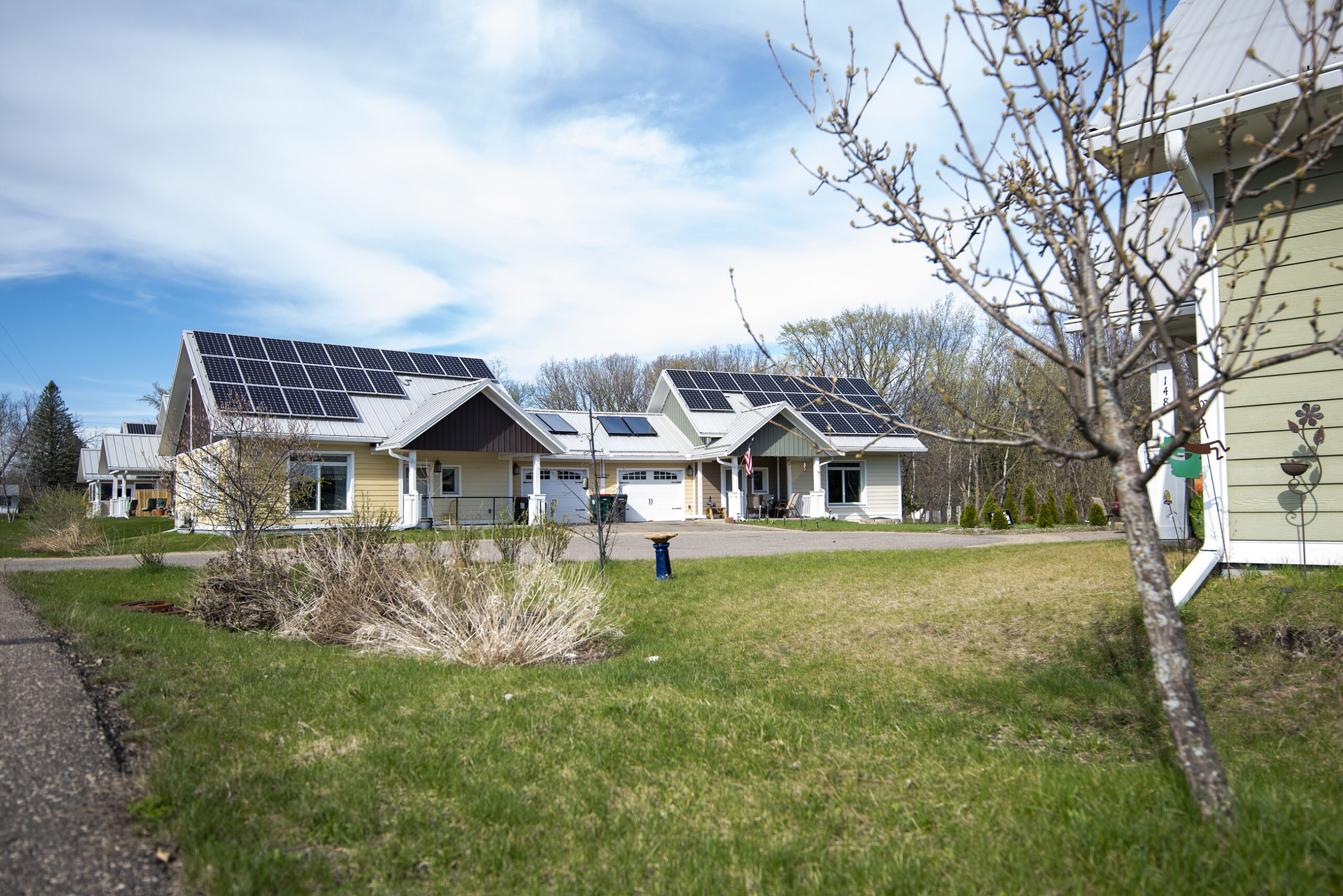
What are customers saying?
At Alliant’s MGE’s hearing a week prior, customer Kirbie Mack said she hopes regulators and the utility will create programs to provide assistance to low-income families.
“Low-income customers with high energy burdens are more likely to have their services interrupted or permanently cut off,” she said. “This is because they are more likely to fall behind on their bills due to the high cost of energy.”
Xcel customers Chet Bowman of Melrose in Jackson County wrote to the PSC opposing rate a rate increase.
“I can’t afford my electric bill as it is, and I have no way of escaping this monopoly,” he wrote.
Customers with solar panels at home also weighed in on Alliant and MGE ‘s requests to change the net metering plans.
Alliant customer Susan Jones said the utility’s existing policy is one of the reasons she got panels installed on her home.
“My fear is that other families considering solar would find these changes and other aspects of Alliant’s complicated proposed pricing structure a barrier to investing in rooftop solar systems,” she said.
MGE customer Mark Shults said he has solar panels on his house. He’s also concerned about the plan to cut reimbursements to residential solar users.
“Net metering is in place to promote advancement in solar and it’s been successful so far,” Shults said. “I’m very much against any changes to net metering.”
What are the utilities saying?
Utilities have said their requests for rate increases are related to the up-front cost of the clean energy transition and the cost of modernizing infrastructure. In the long run, they say renewable energy projects could help stem future rate increases.
“We recognize nobody wants to see their bill go up, including us, which is why we’re planning ahead and taking action on behalf of our customers,” JP Brummond, vice president of customer and community engagement at Alliant Energy, said in a statement. “Once complete, our Wisconsin solar sites will produce enough clean, resilient, zero-fuel-cost electricity to power nearly 300,000 homes annually.”
This spring, Mara Ascheman, Xcel Energy’s regional vice president of rates and regulatory affairs, said the motivation behind the proposed rate increase is to increase investment in aging infrastructure and to continue advancing clean energy technologies.
“We’re rebuilding several transmission lines through our Wisconsin service territory, and we’re adding more wind and solar to our generation portfolio,” she said. “In addition, we’re making investments in new net meters, which will help our customers better manage their energy use and enhance the company’s ability to deliver reliable service.”
Schultz said in a statement that MGE is “sensitive” to the effect its costs have on customers, especially those who struggle to make ends meet.
“Energy affordability is important to MGE,” Schultz said. “It is an issue that we have been working to address and that we will continue to address and manage as we transition our energy supply to cleaner sources.”
Consumer advocate asks state regulators to rein in utility profits
The Citizens Utility Board of Wisconsin, or CUB, has filed testimony in each of the three rate cases, asking regulators to limit profit margins for utilities and address affordability.
Regulators last year voted to reduce profit margins for We Energies and Wisconsin Public Service from 10 percent to 9.8 percent, saving ratepayers roughly $20 million.
Tom Content, executive director for CUB, said his organization is trying to bring profit rates down to 9.3 percent.
“If there were reductions to that effect, that would save over $100 million for customers over the next two years, and would really help mitigate some of the increases that the utilities have applied for,” he said.
Content also said ratepayers have faced a “double whammy” in recent years because it’s early enough in the clean energy transition that customers continue to face volatile fuel costs and construction costs for renewable energy projects.
“Anytime that the utilities are in a construction cycle, it does put upward pressure on our rates,” he said. “We’ve seen that the last few years with all the projects that have been approved.”
Alliant customers can continue to submit written comments to the PSC through Oct. 4. Xcel customers have until Sept. 29. MGE customers have until Sept. 26.
PSC commissioners are expected to issue their rate decisions in November or December.
Editor’s note: Alliant Energy and the Citizens Utility Board of Wisconsin are underwriters of Wisconsin Public Radio.
Wisconsin Public Radio, © Copyright 2025, Board of Regents of the University of Wisconsin System and Wisconsin Educational Communications Board.

